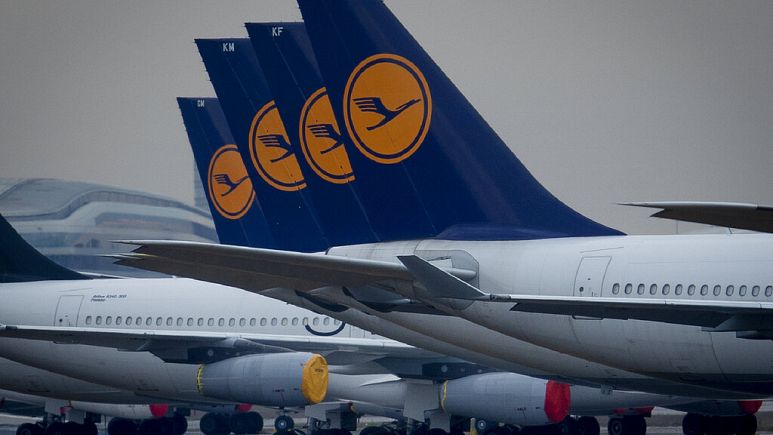State aid should be reviewed 'to help EU compete with US & China'
euronews_icons_loading

The German government and flagship carrier Lufthansa have reportedly reached an agreement on state aid worth €9 billion.
It is the latest in a line of rescue packages to help airlines deal with the coronavirus fallout.
Before the pandemic, state aid — government financial help to homegrown firms — was extremely limited because Brussels believes it makes competition unfair in the single market. But, early in the crisis, the European Commission (EC) suspended the bloc's strict rules so governments could help firms could stave off the threat of collapse. Temporarily, at least.
"Overall, it ensures that public support is limited in time and targeted only to the problems that companies are currently facing," said Margrethe Vestager, the EC's executive vice-president.
"Liquidity support can be granted until the end of 2020 to help companies overcome liquidity shortages and to prevent layoffs."
So far, Brussels has approved almost €2 trillion worth of national rescue schemes during the pandemic with Germany accounting for half of it.
That prompted concerns that countries with the deepest pockets are getting an unfair advantage.
Ryanair CEO Michael O’Leary has been among the most critical.
"What's clearly happening is we have the French and the Germans creating a huge fund — billions of state aid — that will allow them to either low-cost sell against the likes of Ryanair during the recovery period or allow them to engage in mergers and acquisitions and buy up all their weaker competitors when this is over," he told Euronews.
But leaders in Germany see the country's massive use of state ais as “a locomotive” for the EU’s economy in the recovery phase.
Some even want the EU to refocus and relax competition rules even in the future.
"The European competition and state aid rules should enable the creation of European corporate champions so that they can compete with rivals from the US and China," Armin Laschet, State Premier of North Rhine-Westphalia told Euronews.
"Brussels should not look solely at competition inside the Single Market. This will be the challenge in the next years."
Environmental critics fear that the money used for state aid and recovery packages is going, once again, primarily to polluting industries, despite the pre-crisis pledges to strive for a greener economy.